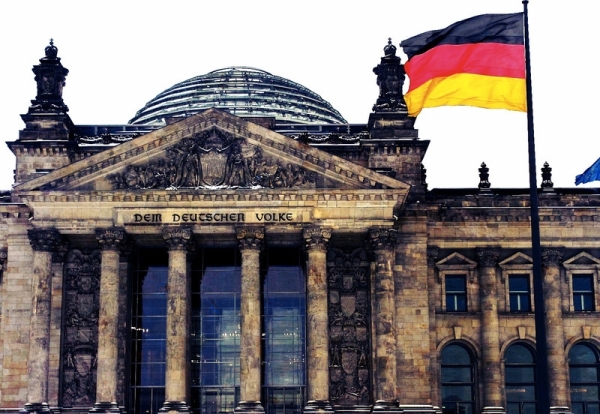Coalition squabble in Germany over €60bn budget black hole
Less than a week has passed since the ruling of Germany’s Constitutional Court against the reallocation of €60bn — and the political consequences are becoming increasingly drastic.
The ministry of finance ordered a temporary budget freeze for almost the entire federal budget this week. It stopped all authorisations for ministries to enter into payment obligations for future years. Expenditure in this year is not affected. According to Reuters and Der Spiegel, only a few areas are exempted from the ban, such as the German parliament and the Federal Constitutional Court.
This spending cut by the ministry will further fuel the ongoing discussion in Germany and within the three-party coalition on how to fix the €60bn hole.
Since the ruling, the ideas on how to fill the new budget cap varied among the coalition partners of the Social Democrats (SPD) with their chancellor Olaf Scholz, the Greens and the Liberals (FDP).
Last week, the Federal Constitutional Court struck down a €60bn off-budget government climate fund. According to the ruling, the German government should not have reallocated funds that were earmarked for the fight against the Covid pandemic into a special climate fund.
The German government had reallocated this sum for climate protection because it had not been used for the fight against the pandemic. The German parliament, the Bundestag, had given its green light for this reallocation.
But the main opposition party, the Christian Democrats (CDU) filed a complaint.
The real dimensions that this court ruling could take are not yet predictable, even for academics or the politicians concerned. It seems possible that there could also be consequences for other funds.
To have a better view of how to exactly interpret and implement the court ruling, the budgetary committee of the German parliament is holding a hearing with external finance experts on Tuesday (21 November). The experts are supposed to also help with the question if the budget for next year can be approved under the new circumstances.
Cuts in social benefits?
The three-party coalition is at the moment divided on how to save €60bn.
The chairman of the FDP in the Bundestag, Christian Dürr, immediately looked to save money where people have the least political voice. He suggested cuts in social benefits — which got a strong negative reaction from the SPD and the Greens.
SPD secretary general Kevin Kühnert accused the FDP of misusing the judgment for "a political campaign against social justice".
And the Greens also rejected the idea. "Cuts in social spending are out of the question from our point of view because this would jeopardise social cohesion, especially in times of high inflation", said Greens chairwoman in the Bundestag, Katharina Dröge. The Greens prefer to cut environmentally-harmful subventions, such as tax benefits for the private use of company cars or subsidies for diesel fuel.
And Dröge, as well as other Greens, spoke in favour of revisiting what is holy grail to the FDP: the suspension of the so-called debt brake.
This instrument, developed in 2009 after the financial crisis, sets certain spending limits. Only in emergency situations, like the Covid crisis, can this debt brake can be temporarily suspended. The FDP is a strong advocate for a strict debt brake, and insisted on it in the debate on where to save the €60bn.
’Find the money elsewhere’
Some SPD and Green politicians see the moment to modify or at least suspend the instrument temporarily. The chairman of the SPD, Rolf Mützenich, spoke in favour of suspending the debt brake for at least 2024, "and possibly even longer".
And Green minister of economics and vice-chancellor Robert Habeck stated on German television on Monday that he found the debt brake was "not intelligent enough" as a mechanism, as it would not differentiate between money spent in the course of the year, and investments in the future which only pay off later.
At the same time, he said abolition or modification of the debt brake would not be constructive, as there was no intra-coalition agreement. "For the present, we will have to find the money elsewhere", he said.
While the coalition is seeking solutions, the opposition Christian Democratic Union (CDU) is on the warpath.
But despite the internal coalition division, and enemy fire from the CDU, it looks so far as if the governing traffic-light (Red/Yellow/Green) coalition will not implode. Even CDU leader Friedrich Merz, often accused of populism, did not ask for new elections.
Nevertheless, for the CDU and its Bavarian sister-party the CSU, the new conflict within the coalition is a cause for celebration. Not only did they initiate the legal challenge, but the coalition’s reputation, already sagging in opinion polls, is again damaged.
It comes shortly after a new ‘green’ heating law to phase-out oil and gas heating systems passed the Bundestag in September, but only after months of public division about it among the SPD, Greens and FDP.

